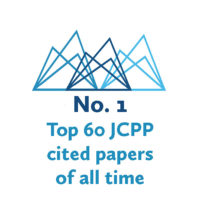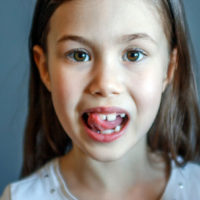Gille de la Tourette Syndrome
-

Tourette Syndrome: Improve Quality of Life and Reduce Misconceptions
This Tourettes Awareness Day (7 June) we encourage you to explore the FREE learning opportunities available on our website, and to share with your networks. Together we can work towards ‘sharing best evidence, improving practice’ to highlight the impact Tourettes can have on those with the condition and those around them.
Read more -

Dr. Michael Bloch
Michael H. Bloch, M.D., M.S. graduated from Yale School of Medicine and completed his child and adult psychiatry training at Yale. He is currently an Associate Professor at the Yale Child Study Center. His research focuses on evidence-based medicine and developing improved treatments for individuals with mental illness across the lifespan using clinical trials and meta-analysis
Read more -

Tourette’s Syndrome Editorial
The focus of this Digest is Tourette Syndrome, a condition, which has much stigma attached, stereotyped views by society about what it means and a lack of national clinical guidance.
Read more -

Most Cited JCPP Articles #1 of 60
Most cited JCPP paper #1 of 60: Executive functions and developmental psychopathology
Read more -

Barriers to improving access to therapy treatment for tics in the UK
The European clinical guidelines for Tourette Syndrome suggest that behavioural therapies (BT) are ‘first line treatments for tics for both children and adults’. However, according to Dr Tara Murphy and Dr Seonaid Anderson and colleagues, a barrier to delivering this in the UK is a lack of access to specialised psychologists and therapists.
Read more -

Access to evidence-based behavioural interventions needs improving for children affected by Tics
In 2016, Chris Hollis and colleagues compiled a Practitioner Review for the Journal of Child Psychology and Psychiatry evaluating the most effective and well-supported interventions for children and young people affected by Tourette syndrome and chronic tic disorder. Here, they discuss the key findings from their systematic review, and highlight that children and young people affected by tics require improved access to evidence-based behavioural interventions.
Read more -

Sensory-action binding: a new facet of Gilles de la Tourette Syndrome?
Gilles de la Tourette syndrome (GTS) is a neuropsychiatric disorder characterised by a persistent motor or vocal tic present for >1 year.
Read more -

Can physical exercise improve tics and associated mental health difficulties in Tourette syndrome? The jury is out
Physical exercise is increasingly being recommended as part of management for children and young people with mental health problems. There is a growing evidence base that shows physical exercise is associated with improvements in functioning for conditions such as attention deficit hyperactivity disorder (ADHD), although studies are small, they are signifcant.
Read more -

Challenging perspectives on Gilles de la Tourette Syndrome – evidence for a disorder of purposeful actions
Gilles de la Tourette Syndrome (GTS) is a multi-faceted neuropsychiatric developmental disorder with onset in childhood or adolescence. It is characterised by multiple motor and vocal tics that can cause considerable problems including social stigmatisation, low self-esteem and secondary comorbidity, particularly depression.
Read more -

Tourette Syndrome edition
Welcome to the February 2019 edition of The Bridge. The focus of this edition is Tourette Syndrome, a condition, which has much stigma attached, stereotyped views by society about what it means and a lack of national clinical guidance.
Read more